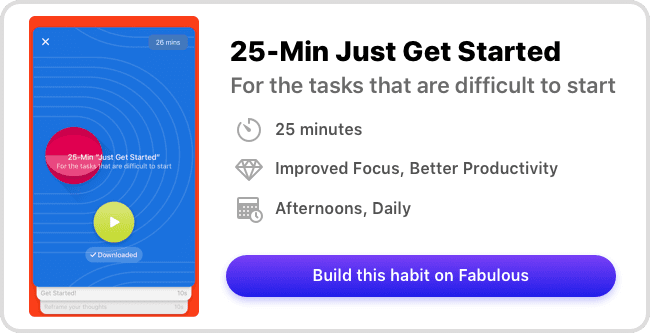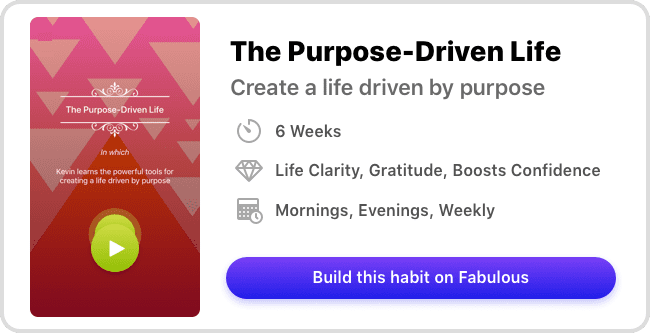Have you ever been so caught up in an activity that you lost all sense of time? Maybe you were reading an amazing book or working on a passion project when, suddenly, the day was over? During moments like these, you’re focused on what’s in front of you, at the exclusion of everything else. Your productivity and enjoyment spike and you feel “in the zone.” This state is called the flow state and, in his book Flow: The Psychology of Optimal Experience, Mihaly Csikszentmihalyi writes about how flow works and, more importantly, how to get into that wonderful but evasive flow state.
What Is Flow?
Flow, a term coined by Csikszentmihalyi, is named for the feeling of effortlessness people experience in a flow state. When you’re in a flow state, you’re concentrating exclusively on the task at hand. Time seems to speed up or slow down. You feel less self-conscious, more confident, and appropriately challenged. It’s enjoyable, rewarding, and oh-so-easy.
According to professor and researcher Arne Dietrich, when you enter a flow state, activity in the prefrontal cortex of the brain decreases. The prefrontal cortex is responsible for high cognitive functions like self-reflection and working memory. This deliberate relaxation of activity in the prefrontal cortex would explain how you lose our senses of time or self-consciousness during a flow state.
A decrease of activity in the prefrontal cortex also allows other parts of the brain to communicate more freely, no longer inhibited by your inner self-critic. This allows for that effortless euphoria felt during flow to blossom.
How to Get into a Flow State
It’s not difficult to understand the benefits of being able to access flow on demand. But how do you get into a flow state? Here are some of our tips.
Do one thing at a time.
To quote the author himself, “Happiness takes a committed effort to be manifested.” Utilizing flow isn’t something you can do halfway. When it comes to your goal, whatever it is, you’re either all in or you’re out. You cannot multitask and experience flow at the same time, much in the same way you can’t float in a swimming pool and be dry at the same time. Flow only happens when you’re so focused on one thing, not even your most basic needs matter. If you are in a state of flow, Twitter and Facebook should be the last things on your mind.
If you need help reducing distractions, Fabulous has several Deep Work modules you can try. Start with a simple one, like the 25-minute Just Get Started session.
Find the challenge sweet spot.
Boring or challenging activities, unfortunately, do not make good breeding grounds for flow. Flow happens when the challenge you’re facing is exactly appropriate for your current level of skill. If the challenge is too much, you get frustrated or anxious. If it’s too easy, however, you get bored or become distracted. When you find that perfect balance, you step into a flow state.
Love what you’re doing.
Another important component of flow is intrinsic motivation. Unlike extrinsic motivation, like the fear of getting in trouble or the promise of a paycheck, you are in control of the thing that motivates you. You’re doing something simply because you enjoy doing it. It’s the sense of reward and joy that comes from the activity itself that keeps you doing it. So, if you gear your work and hobbies toward things that intrinsically motivate you, you’re far more likely to experience flow states.
One thing that can help foster intrinsic motivation is a firm sense of purpose. The Purpose-Driven Life is a Fabulous journey designed to help you find the things that ignite your sense of purpose. Use it to figure out what matters to you.
Keep Moderation in Mind
Dancing, sports, and playing music are all activities that are conducive to flow states, and it would be hard to label any of those activities as bad for you. However, there are plenty of unhealthy activities that can induce a state of flow, such as gambling. Even something unassuming like running or games like Candy Crush can quickly escalate from a flow-inducing hobby to an addiction.
Csikszentmihalyi believes that repeated conscious access to flow states is the key to lifelong happiness. However, he warns, it’s not just about learning how to enter a flow state but learning how to manage a life outside of those moments, too. Like any personal development tool we talk about at Fabulous, flow is just that: A tool. It’s one of many ways to help make your lives better but, like anything else, too much of it can actually hurt more than it helps.





